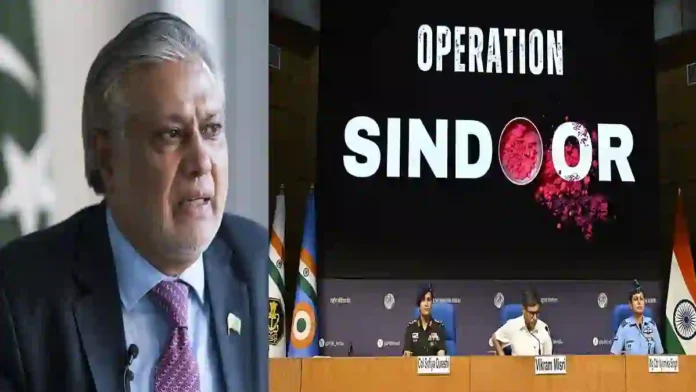India firmly rejected third-party mediation during Operation Sindoor, labelling all matters with Pakistan as strictly bilateral, Pakistan’s Deputy Prime Minister and Foreign Minister Ishaq Dar revealed in an Al Jazeera interview.
Dar recounted that while US President Donald Trump repeatedly claimed credit for brokering the May 10 ceasefire between the two nuclear powers, India had categorically denied any such American role, stressing instead that the truce followed direct DGMO-level talks.
Read- Prime Minister Narendra Modi Unveils ‘Indian Armed Forces Vision 2047’ Document
The minister also underlined that Pakistan would not “beg” for dialogue, framing negotiations as a matter of equality and reciprocity, remarking that “it takes two to tango.”
His words sought to portray Pakistan as open to discussion but unwilling to compromise on its agenda, thereby highlighting Islamabad’s attempt to shift responsibility for the deadlock onto India while reinforcing its diplomatic posture on core disputes, especially Kashmir.
Dar said he raised the issue of mediation with US Secretary of State Marco Rubio, both on May 10 and again during a July 25 bilateral meeting in Washington, only to be told that New Delhi opposed outside involvement, reaffirming its bilateral stance.
Operation Sindoor, triggered by the April 22 Pahalgam terror attack that killed 26, saw India conduct precision strikes on nine terror camps in Pakistan and Pakistan-occupied Jammu and Kashmir (PoJK).
Read- Union Home Ministry To Set Up Jungle Warfare School In Red Corridor
Read- India Issues NOTAM For A Likely Missile Test In Bay of Bengal Region
The military escalation had fuelled global concerns of spiralling conflict, with Trump asserting that US intervention prevented a nuclear standoff. India, however, rejected such claims, underscoring its policy of handling Pakistan-related issues independently.
Dar, while acknowledging India’s consistent bilateral line and reiterating Pakistan’s openness to talks, stressed that any dialogue must be comprehensive, including terrorism, trade, economy, and the Jammu and Kashmir dispute. He added that Islamabad would not “beg” for talks, arguing that the responsibility lay equally on New Delhi, noting that “it takes two to tango.”
“We are not begging for anything. If any country wants dialogue, we are happy; we are welcome… We believe that dialogue is the way forward, but obviously it takes two to tango. So, unless India wishes to have dialogue, we can’t force dialogue. We don’t wish to force dialogue,” Dar added.
His remarks highlight the rigid divide in India–Pakistan positions—New Delhi emphasizing bilateral, issue-by-issue management while Islamabad seeks a structured, wide-ranging engagement with international awareness.
Based On ANI Report
Agencies




